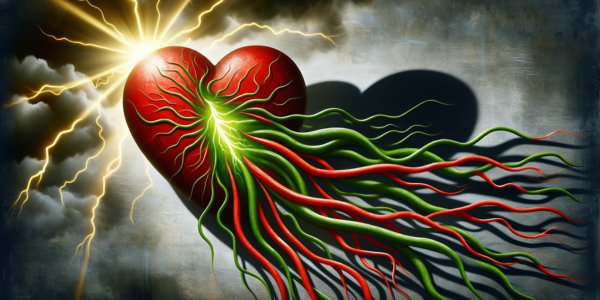Zelophilia
Zelophilia: When Jealousy Becomes Desire
Zelophilia is a sexual paraphilia in which an individual experiences arousal from feelings of jealousy—either their own or their partner’s. Rather than viewing jealousy as purely negative, zelophilia reframes it as an emotional and erotic trigger. It highlights how vulnerability, possessiveness, and fear of loss can transform into a powerful form of desire.
In some cases, people with zelophilia feel heightened attraction when imagining or witnessing their partner’s potential interest in others. The psychological intensity of jealousy—its mix of fear, excitement, and longing—creates a unique emotional high that blends love with possessiveness.
The Emotional Core of Zelophilia
Zelophilia stems from the deep human connection between attachment, control, and validation. For some, jealousy becomes proof of passion—an emotional charge that reassures them of intimacy and importance. In relationships involving this fetish, partners may explore jealousy through fantasy, role-play, or controlled emotional scenarios.
However, healthy practice requires communication and consent. Without trust, zelophilia can quickly turn toxic. The key difference between erotic jealousy and harmful jealousy lies in mutual understanding—transforming what could be insecurity into an emotionally shared experience.
FAQ
What is an example of sitophilia?
Sitophilia involves arousal from food during sexual play. Examples include using whipped cream, chocolate, or fruit as part of foreplay or sensory stimulation.
What is the true meaning of jealousy?
Jealousy is an emotional response to perceived threats to one’s relationship or affection. It blends fear of loss with desire for exclusivity and reassurance.
What is jealousy trying to tell you?
Jealousy often signals insecurity or unmet emotional needs. It highlights areas where reassurance, communication, or self-reflection are needed in a relationship.
What is the root cause of extreme jealousy?
Extreme jealousy can stem from low self-esteem, fear of abandonment, or past relationship trauma. It’s often tied to a desire for control or emotional validation.
Is jealousy a form of love?
Jealousy may accompany love but isn’t the same thing. While mild jealousy can show emotional investment, excessive jealousy reflects insecurity rather than affection.
How do men act when jealous?
Men often show jealousy through protective or possessive behavior, emotional withdrawal, or irritability. The reaction varies depending on personality and emotional awareness.
















